Is SciFi good Kindling?
E-books and the future of science fiction
Scifi authors Neal Stephenson and Greg Bear appear to be attempting something like this with The Mongoliad, billed as a “new kind of serialized novel, created by Neal Stephenson, and written by Neal, Greg Bear, … and a number of other great authors. It will be told via custom apps … and will be something of an experiment in post-book publishing and storytelling.” I may just have to break down and get the app for that. (But for me that means getting a phone that can handle it.)
The word “post-book” used here, however, suggests that we may be moving to something new and strange (and interesting) as e-books start to take hold. John Warren predicts that e-books
will be progressively more interactive. Many more authors will explore collaborative models, seeking input on their creative process, allowing others to remix or reuse their work, and teaming up with other authors or fans to create new content. Links within and to other books and media will lead us in new directions from the electronic page. And electronic texts will be remixed and mashed up with other digital media into works that may or may not be called a book and that could not, at any rate, have existed in print (p.91).
What these will look like, I am not certain. I have high hopes that the future of e-books will lead us not into a dumbed-down dystopia, but into a new Renaissance which produces new forms of literature, as novel as the novel itself once was. (Hence its name.) My challenge to all the scifi writers out there is to start writing stories which could only be written as e-books, but which are still recognizable as stories. Chart new territory in this remixed, hyperlinked, nonlinear, brave new world.
But keep writing those old-fashioned stories too. Because every once in while, I’ll still want to curl up and read a nice linear story. On my Kindle, of course. And it’s important to remember the second definition on my reader’s screen saver:
“Arouse or inspire.”
About the Author: Henry Cribbs somehow managed to sneak his science-fiction poem about Schrödinger’s cat into the literary art journal Lake Effect, and has also published book reviews for Philosophical Psychology, Chicago Literary Review, and Black Warrior Review. He taught philosophy and creative writing at the University of South Carolina for several years, and now forces his high school English students to read Ray Bradbury. He currently serves on the editorial board for Nimrod International Journal of Prose and Poetry.
Works Cited:
“E-Books, Kindles, & Nooks from the Reader’s and Writer’s Perspective” at Conestoga XIV, Tulsa OK, April 24, 2010. Panelists included Steven Wedel, Will Thomas, and Lou Antonelli. Information on upcoming Conestoga events can (sometimes) be found at http://sftulsa.org/home/.
Einstein, Sarah. “The Future Imperfect” in Redstone Science Fiction, No. 1 (June 1, 2010). http://redstonesciencefiction.com/
Flint, Eric. Prime Palaver. Nos.1-11 (Dec. 20, 2000 – Sept 16, 2002) in the Baen Free Library http://www.baen.com/library/.
Hayden, David Alastair. “An Interview with Lou Anders” in Redstone Science Fiction, No.1 (June 1, 2010). http://redstonesciencefiction.com/
Jensen, Michael. “Academic Press Gives Away Its Secret of Success” in Chronicle of Higher Education (September 14, 2001). http://chronicle.com/article/Academic-Press-Gives-Away-I/27430/
Warren, John, RAND Corporation. “Innovation and the Future of E-Books.” In International Journal of the Book , Vol. 6, No. 1 (2009). http://www.rand.org/pubs/reprints/2009/RAND_RP1385.pdf

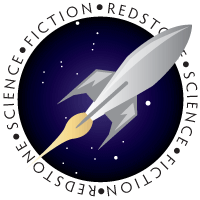
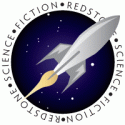



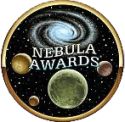

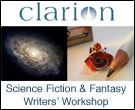


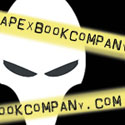
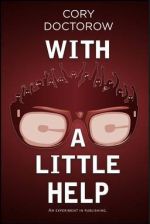
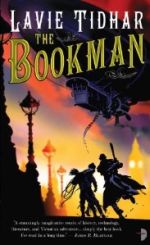
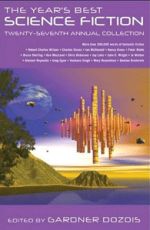


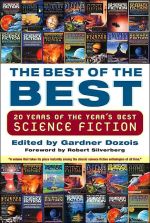
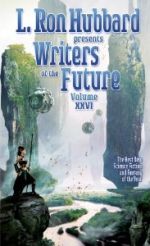

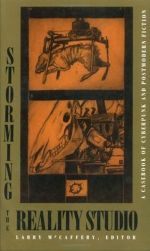



5 comments
[…] Is SciFi Good Kindling? by Henry […]
This is a weird thing which seems to affect a lot of sci-fi writers (in my experience, anyway), both in their view of the future of publishing, and also in their adoption of new technologies. As a sci-fi fan and aspiring writer, I can’t imagine not adopting the newest, coolest gadgets as they come out — I get to live the stuff I read about growing up!
[…] This post was mentioned on Twitter by Mr Spock. Mr Spock said: Is SciFi good Kindling?E-books and the future of science fiction … http://bit.ly/agxnlg […]
Henry,
I appreciate the nod in your essay, but I have to jump in and correct a possible misinterpretation of the information. I use my Kindle both for e-books and Audible files. Sadly, the fear of the new publishing paradigms made possible by e-readers has over-ridden the goodness that would be more universally accessible reading for people whose bodies function in ways that limit their ability to read directly from a text object. (This is not just an issue for the visually impaired; many people with mobility and motor function issues also find books problematic.) When Amazon introduced the text-to-speech function, the writing community was disquieted. This essay by Roy Blount, Jr. is probably the most erudite version of the argument against this feature: http://www.nytimes.com/2009/02/25/opinion/25blount.html
Now, as a writer, I do care about rights and about the already paltry revenues that most writers see from their efforts. That said, I care more about accessibility. Amazon has seriously crippled the function, allowing publishers to “opt out” (which most have done) and seriously limiting the liberatory potential of the Kindle for persons with disabilities.
I have played with Kindle’s text-to-speech tool, and frankly, though it’s cool, it doesn’t strike me as a serious threat to the audio-book market. The voice can’t inflect, it can’t provide subtle clues to character shifts in dialog, and it rise and fall in tempo and pitch along with plot points.
It’s my sad belief that, in this case, the Author’s Guild came out on the wrong side of an issue that matters deeply to persons with a variety of disabilities. I hope that it’s a short-lived mistake, and that we see text-to-speech capabilities built into all e-readers in the near future.
Sarah
[…] or with their wonderful essay on eReaders at “Is SciFi good Kindling?” by Henry Cribbs […]